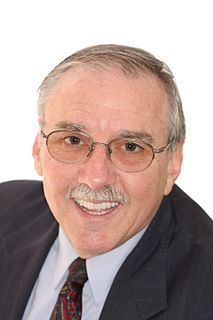A Quote by Arthur Koestler
I profoundly admire Aldous Huxley, both for his philosophy and uncompromising sincerity. But I disagree with his advocacy of 'the chemical opening of doors into the Other World', and with his belief that drugs can procure 'what Catholic theologians call a gratuitous grace'. Chemically induced hallucinations, delusions and raptures may be frightening or wonderfully gratifying; in either case they are in the nature of confidence tricks played on one's own nervous system.
Quote Topics
Admire
Advocacy
Belief
Both
Call
Case
Catholic
Chemical
Confidence
Delusions
Disagree
Doors
Either
Frightening
Grace
Gratifying
Gratuitous
Hallucinations
His
Huxley
May
Nature
Nervous
Nervous System
Opening
Other
Own
Philosophy
Played
Profoundly
Sincerity
System
Theologians
Tricks
Uncompromising
Wonderfully
World
Related Quotes
But the man who is not afraid to admit everything that he sees to be wrong with himself, and yet recognizes that he may be the object of God's love precisely because of his shortcomings, can begin to be sincere. His sincerity is based on confidence, not in his own illusions about himself, but in the endless, unfailing mercy of God.
The system is not intended as a substitute for private savings, pension plans, and insurance protection. It is, rather, intended as the foundation upon which these other forms of protection can be soundly built. Thus, the individual's own work, his planning and his thrift will bring him a higher standard of living upon his retirement, or his family a higher standard of living in the event of his death, than would otherwise be the case. Hence the system both encourages thrift and self-reliance, and helps to prevent destitution in our national life.
To live his life in his own way, to call his house his castle, to enjoy the fruits of his own labour, to educate his children as his conscience directs, to save for their prosperity after his death -- these are wishes deeply ingrained in civilised man. Their realization is almost as necessary to our virtues as to our happiness. From their total frustration disastrous results both moral and psychological might follow.
The only distinction between freedom and slavery consists in this: In the former state a man is governed by the laws to which he has given his consent, either in person or by his representative; in the latter, he is governed by the will of another. In the one case, his life and property are his own; in the other, they depend upon the pleasure of his master. It is easy to discern which of these two states is preferable.
The believer is sensible of his infirmities, for it is supposed that he is wrestling under them. He sees, he feels, that he is not man enough for his work; that his own hands are not sufficient for him, nor his own back for his burden; this is what drives him out of himself to the grace that is in Christ Jesus. And thus he lies open to the help of the Spirit, while proud nature in unbelievers is left helpless.
Once infected, the individual [infected with a god virus] cannot detect major contradictions in his beliefs and behavior. Belief systems become self-evident to him, and no amount of logical discourse will move him from his belief. If a Mormon and Catholic were to debate the merits of their respective religions, neither could see his own inconsistencies and logical fallacies, but would see the other's quite clearly.




































